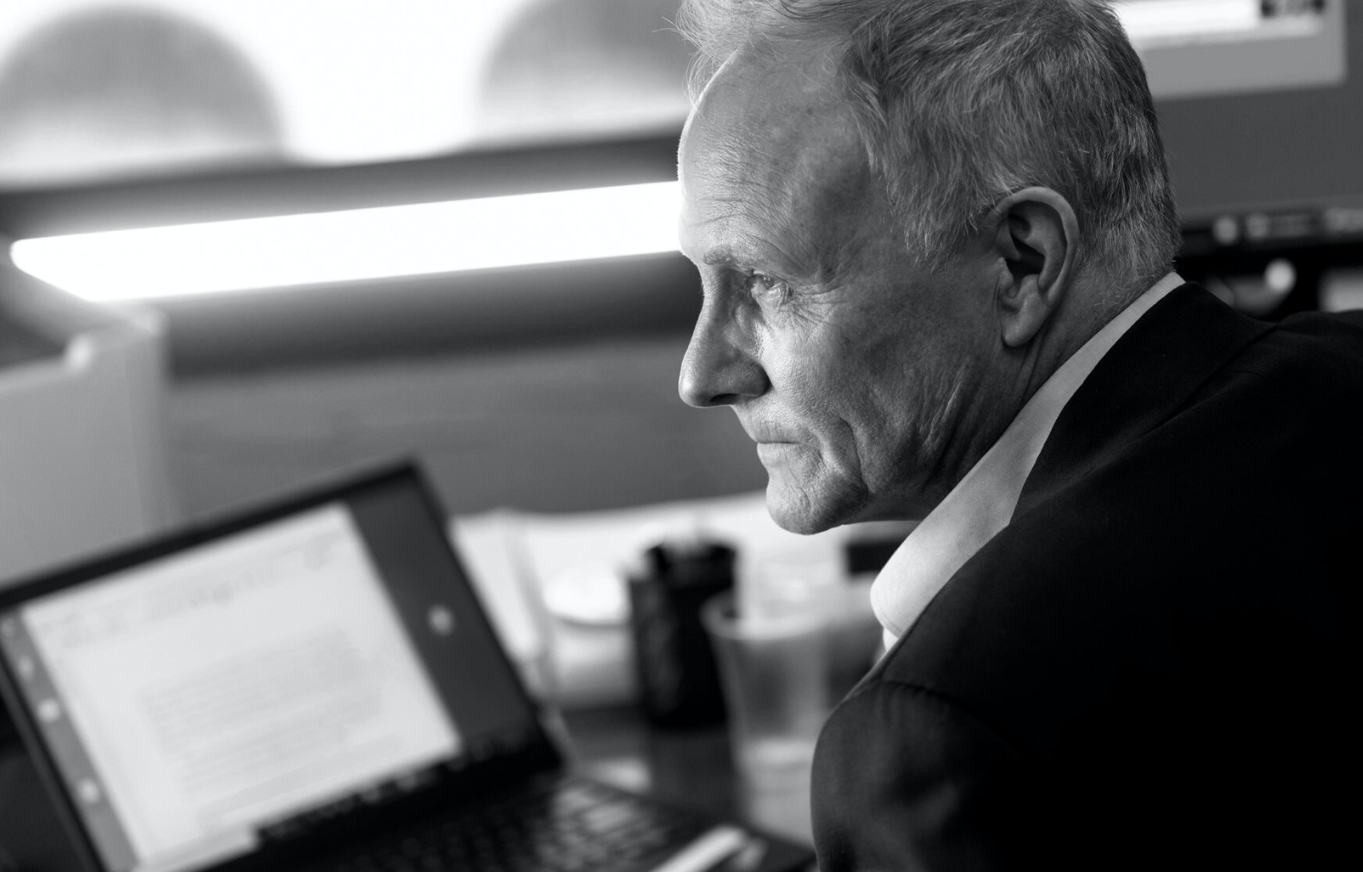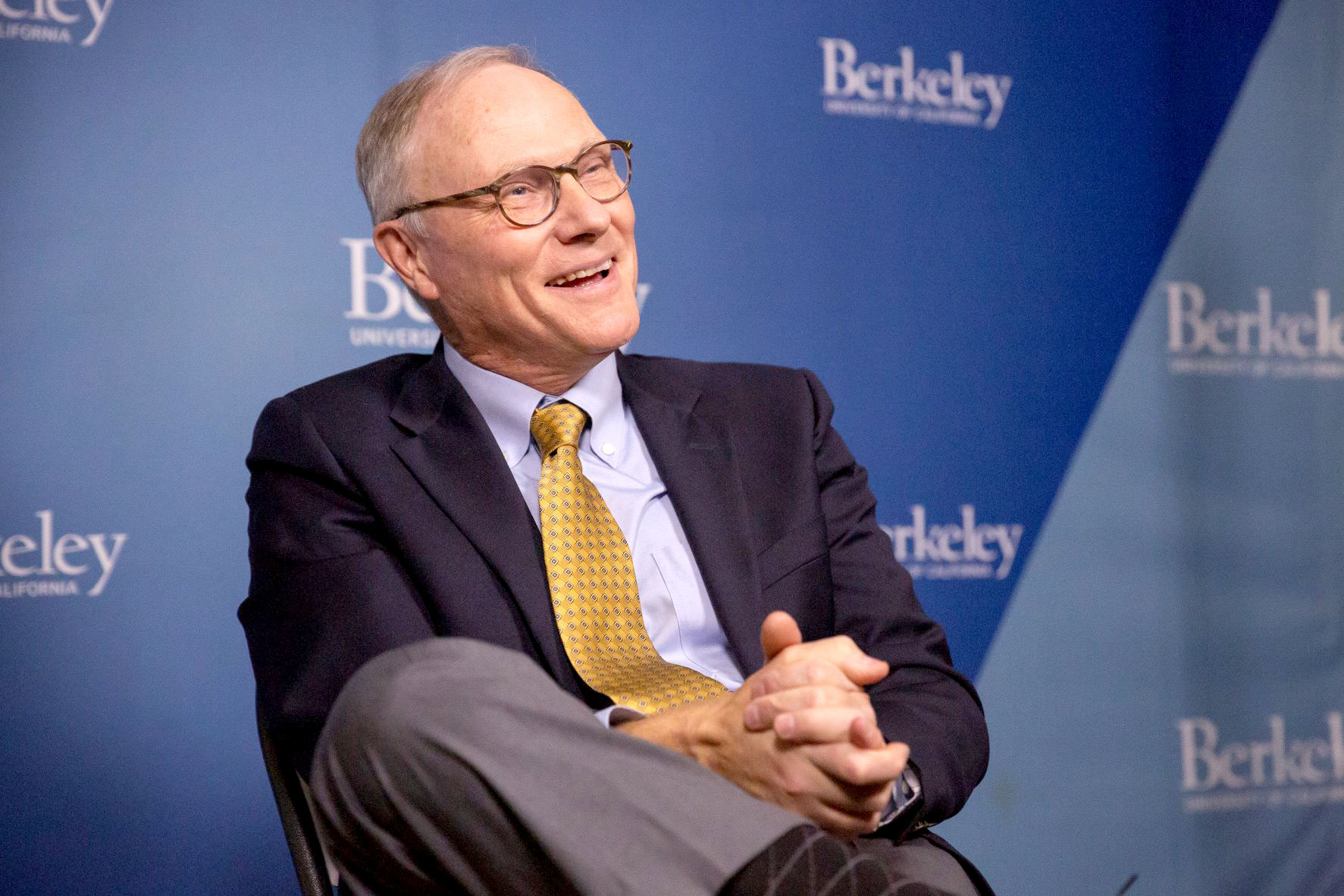GUELPH/ERAMOSA – Former Guelph/Eramosa resident David Card has been named the recipient of the 2021 Sveriges Riksbank Prize in Economic Sciences in Memory of Alfred Nobel.
Card received the Nobel Prize alongside Joshua D. Angrist from the Massachusetts Institute of Technology and Guido W. Imbens, a Dutch-born professor from Stanford University.
The award, announced in Stockholm, Sweden on Oct. 11, credited Card for his impact on policy debates over immigration, welfare reform and inequality.
Born in Guelph and raised on a family farm in Guelph/Eramosa, Card is currently a labour economist and economics professor at the University of California, Berkeley.
“I thought it might be a joke – actually, a practical joke,” Card said of what went through his mind when he received the news.
“You call somebody at 2am and leave a message on the answering machine say it’s a call from Sweden and I thought it might be my old friend in Guelph, Tim, doing it.”
Card said he received the news after returning from a trip to Guelph. It wasn’t until he arrived at his home in Santa Rosa after midnight that he heard the news, adding it was “pretty unexpected.”
“It’s work that was done many, many years ago so it’s been out there for a long time,” he explained.
“The Nobel Prize receives a lot of public recognition, more so than other awards and prizes in economics, or in other fields as well, so it’s great.”
A press release from the university said Card is most known for pioneering studies in the 1990s with Alan Krueger, which questioned prevailing assumptions about the impact of immigration on native-born U.S. workers and the effect of minimum wage increases on domestic job growth.
Having graduated from John F. Ross in 1974, Card is also a member of the Guelph high school’s hall of fame, where he was one of the first six alumni to be inducted in 2017.
His plaque in the hall of fame says Card was president of student council and “instrumental in creating the business model for the purchase of the cafeteria.”
After John F. Ross, Card graduated from Queen’s University with a bachelor of arts in 1978, and then went on to obtain a PhD in economics from Princeton University.
Card is UC Berkeley’s sixth economist to win the Nobel Prize in economics and the campus’s 26th Nobel laureate overall, the release from the university states.
“Economics works fairly well in describing the way farm economy works,” Card said of how he got into studying economics.
“It’s quite a bit more successful in describing the farm economy than the labour market as a whole. So, if you grow up in farming and start reading an (economics) book, you think ‘holy smokes,’ this is actually pretty interesting.”
Doug Cumming, former teacher at John F. Ross, met Card in his first year of high school in 1970 and taught him throughout his high school career.
“It was quite amazing,” Cumming said of the news. “But in a way it didn’t surprise me because he was always a very bright young man.
“He was a solid academic student who achieved good grades, but he was quiet in his early years at the school … and I think he was a very capable student who in some ways really didn’t want it to show when he was a young teen because that’s not ‘cool.’”

DAVID CARD (Submitted photo)
Cumming said he recognized Card as a good student from the start, adding his work now is very topical and, in some ways, has turned traditional views.
“He’s proved the opposite of what some of the traditional theorists had said so I think he’s had quite a lot of impact and will continue to have a lot of impact in that regard, not only in the U.S but also in Canada.”
Cumming lauded Card for his ability as a student to “push the buttons a little bit on not doing things just because that’s the way we always did them, but to make changes that seemed logical and for the betterment of the school and for the students and everything going on. And I find that really interesting when I think back on that, well that’s really, he’s been doing that his entire life.”
Cumming’s earliest memory of Card was when he first walked into his classroom in Grade 9 homeroom.
“I remember him as just a quiet little young teenager coming into my classroom in Grade 9 … and kids in those days, they all wore their hair long and he always looked like he had just stepped out of the shower,” he recalled, adding Card had a morning routine of milking the family’s cows before heading off to school.
Cumming said Card did a lot of very positive things with regard to student life at John F. Ross, but noted he thinks Card was a self-taught individual in a lot of ways.
Cumming added that when he learned about Card’s farm background he immediately identified with the lifestyle, as he also grew up on a farm.
“And so, when David talked in his post-Nobel award interview about the importance of a solid work ethic, I know as his teacher that this was an important influence on him as a young person.
“He spent a lot of years working up to it so I’m just very happy for him and really pleased that his work in this field is being recognized and it’s always nice to see a Canadian superstar in an American setting.”
Card explained most of the work he does aims to educate other economists trying to figure out how the labour market works and what’s going on.
He said the work that he’s being recognized for on minimum wages wasn’t very topical at the time, but since there’s been “more accumulation of additional evidence and increasing concerns about what was going on with wages for lower skilled workers.
“And so there’s been some renewal of interest in minimum wages in the last decade, but it’s really hard to say whether that was driven by our work or not.”
On his work, Card said there’s often a lot of ideas in economics that are oftentimes widely accepted, more so by the general public than by vast majority of economists.
He added in some instances, economists as a whole have ideas of what’s going on, but economic knowledge is pretty limited, making it difficult to have a good understanding of exactly why things are doing what they’re doing in the labour market.
“And so, I’ve always thought that was a really important job that someone like me could do, which was to try and help straighten out or push the field to say, ‘okay, we’ve got different ways of thinking about this problem, is this one right or that one right?’”
Card added it’s hard to do, but you learn from some kind of real-world evidence.
“You’re always trying to find the next episode out there that suggests that you might be able to learn something,” he said.




